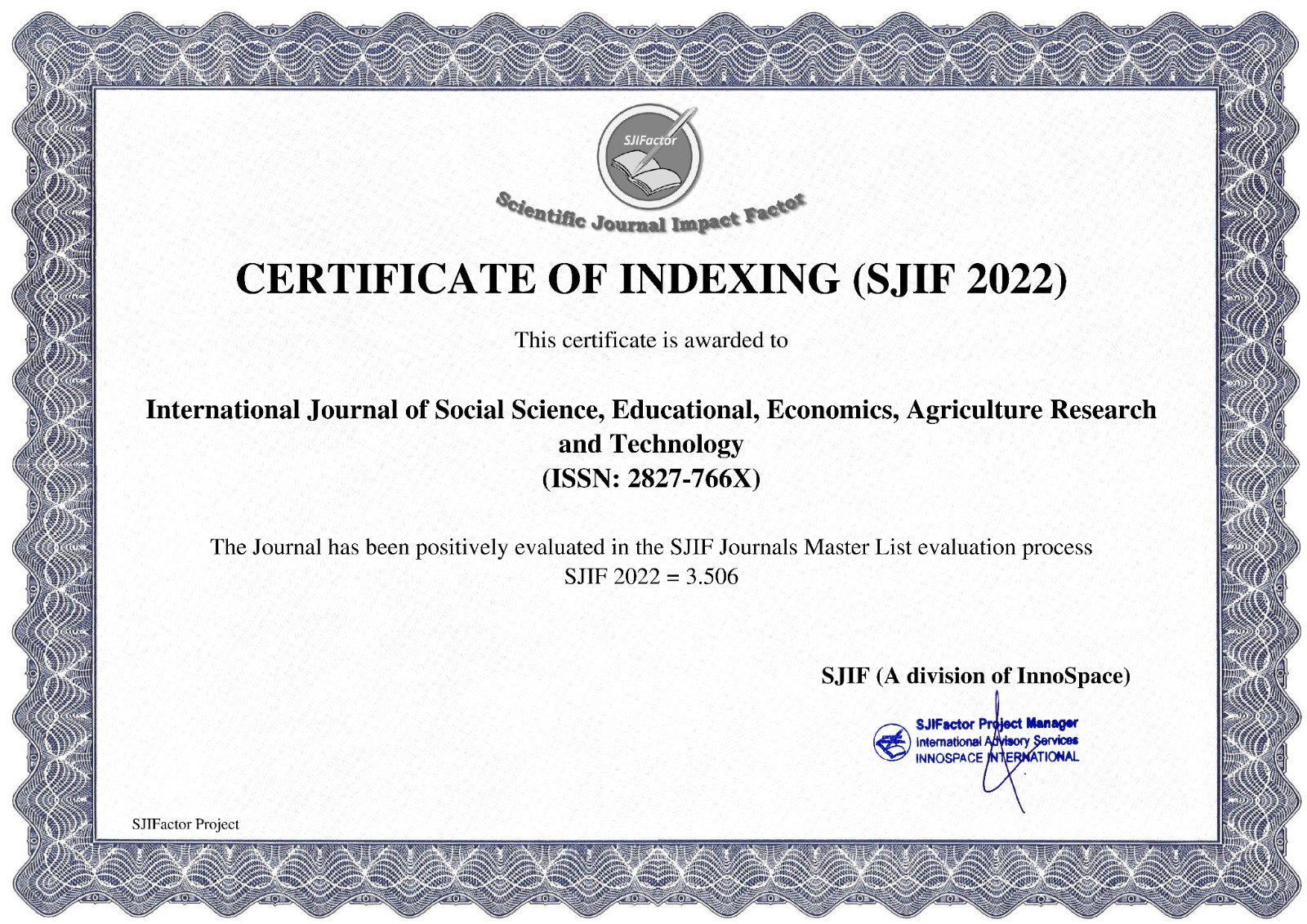INTEGRATION OF PHILOSOPHY OF SCIENCE AND SCIENCE AND TECHNOLOGY IN SCIENCE LEARNING: TOWARDS CRITICAL AND REFLECTIVE SCIENCE EDUCATION
Main Article Content
Fatimatuzzahro
Nanik Nurhayati
Syaifur Rijal
I Ketut Mahardika
Suratno
The rapid development of Science and Technology (Science and Technology) in the era of Industrial Revolution 4.0 and Society 5.0 demands learning of Natural Sciences (IPA) that not only emphasizes cognitive aspects, but also develops critical thinking skills, reflective, and ethical awareness of students. However, the practice of science learning in Indonesia still faces challenges in the form of the dominance of the rote approach and the lack of integration of the philosophical dimension and the value of science and technology. This study aims to analyze the integration of the philosophy of science and the use of science and technology in science learning and its contribution to strengthening students' critical and reflective thinking skills. The method used is Systematic Literature Review (SLR) by analyzing 15 selected scientific articles from a total of 25 articles obtained through a systematic selection process on academic databases. The results showed that philosophy of science strengthens students' understanding of scientific processes that are critical and tentative, while science and technology act as contextual media that can enrich the science learning process. The integration of both is effective through reflection-based learning models, socioscientific issues, and scientific ethics. This study recommends strengthening science learning that is integrative and holistic to support the achievement of 21st century competencies and the implementation of the Merdeka Curriculum substantively.
Ansya, Y. A. U., & Salsabilla, T. (2025). Science learning based on Information and Communication Technology. Journal of World Education, 5(5), 1858-1877.
Darmawan, H., Mahanal, S., & Susilo, H. (2025). ReCLif Learning Model. NEM Publisher.
Front, C. M., & as Mitra, A. I. (2025). Self-Directed Learning. UTILIZING AI TO AI-DIRECTED, AI-SUPPORTED, AND AI-EMPOWERED LEARNING, 65.
Ekawati, R., Widiasih, W., Mashfufah, A., & Rufiana, I. S. (2024). The Effect of Learning Cycle with Contextual Teaching Learning Approach on Critical Thinking Skills in Science Learning. Simki Pedagogia Journal, 7(1), 119-128.
FIRDAUS, F. M., WAHIDIN, W., RAMDANI, D., HERNAWATI, D., & BADRIAH, L. (2024). PROFILE OF STUDENTS' DIGITAL LITERACY SKILLS IN SCIENCE LEARNING. SCIENCE: Journal of Mathematics and Science Education Innovation, 4(4), 697-707.
Haki, U., Suciati, S., Widodo, J., & Tabroni, T. (2022). Knitting horizons of understanding: Epistemology of educational science and scientific methods in exploring the nature and limits of science [Ebook]. University of Muhammadiyah Malang. https://eprints.umm.ac.id/id/eprint/15581/
Hariyono, H., Andrini, V. S., Tumober, R. T., Suhirman, L., & Safitri, F. (2024). Learner Development: Theory and Implementation of Learner Development in the Digital Age. Sonpedia Publishing Indonesia.
Ministry of Education. (2022). Independent Curriculum Implementation Guide. Jakarta: Ministry of Education, Culture, Research and Technology.
Lestari, R. D., Alhayat, A., Aditya Irfan Kustiaman, S. T., Endang Purwati, S. T., Kurniawati, N., Qatrunnada, J. I., ... & Utami, T. (2023). Philosophical Studies in Educational Practice. Indonesia Emas Group.
Naksabandi, A., Jusepi, J., Rahman, M. Y. N., Lukmana, D. N., Hafsah, E. H., Amelia, M., ... & Asyid, S. A. (2025). Philosophy of Science. Indonesia Emas Group.
Nurhalimah, S., Latip, A., & Purnamasari, S. (2024). ANALYSIS OF SOCIO-SCIENTIFIC ISSUES (SSI) APPROACH IN SCIENCE LEARNING TOWARDS SCIENTIFIC LITERACY. Pendas: Scientific Journal of Basic Education, 9(2), 1987-2000.
Rachmadtullah, R., Setiawan, B., Wasesa, A. J. A., & Wicaksono, J. W. (2022). Interactive Learning Monograph with Metaverse. Cv. Eureka Media Aksara.
Rahmah, H., Turmudi, T., & Ghifari, M. T. (2024). Systematic literature review: Self-confidence in mathematics learning. JPMI (Journal of Innovative Mathematics Learning), 7(1), 97-110.
Rahman, E. Y., Santosa, Y. B. P., Bustan, B., Sultan, H., Wowor, E. C., Tumewu, W. A., ... & Sulistyosari, Y. (2023). The role of teachers in the world of education.
Ristiani, R., Ali, A., & Apriyanto, A. (2025). Basic Concepts of Science Learning. Sonpedia Publishing Indonesia.
Saraswati, I., & Hendrawan, B. (2022). Evaluation of Technology Use in Science Learning and its Relevance to Science Ethics Values. Journal of Educational Technology, 24(1), 75-83.
Sundari, U. Y., Panudju, A. A. T., Nugraha, A. W., Purba, F., Erlina, Y., Nurbaiti, N., ... & Pereiz, Z. (2024). Research Methodology. CV. Gita Lentera.
Wibowo, A., & Putri, S. (2021). Practical Guidelines for Preparation of Scientific Manuscripts using the Systematic Review Method. Depok: Department of Health Administration and Policy, Faculty of Public Health, University of Indonesia.
Widiyawati, N., Anggraeni, R., & Suryana, A. (2021). Science teacher readiness in facing digital technology-based learning. Indonesian Journal of Science Education, 10(3), 389-397.
Widodo, S. A., Lestari, N. D., & Firmansyah, R. (2023). Transformation of Science Learning Based on Digital Technology: Opportunities and Challenges. Journal of Science Technology and Learning, 4(2), 101-112.
Yusuf, T. K., Illahiyah, A. D., & Halimah, S. (2024). SYSTEMATIC LITERATURE REVIEW OF PHILOSOPHY OF SCIENCE ANALYSIS OF SCIENCE IN THE MODERN ERA. Educandumedia: Journal of education and educational science, 3(3), 1-14.






















